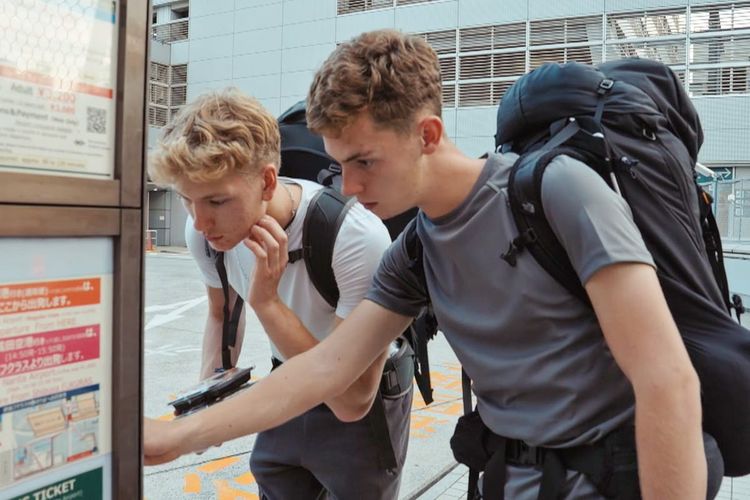Race Across the World proves that travel is best without a smartphone – review

Sign Up For Free Real-time Breaking News Alerts To Your Inbox
Get Free Breaking News Updates Via Email
I must confess that I personally feel drained after traveling and I cannot understand why some people would choose to watch a complete season of Race Across the World, let alone have the energy to endure all nine hours of viewing.

The initial phase of their expedition took them from the north to the south of Japan, and it felt a lot like going on a sightseeing trip, but more extreme, condensed, concentrated, and utterly tiring. The teams consisted of five pairs of participants, ranging from bothersome siblings who were barely twenty years old, to a tranquil elderly couple in their sixties. They had to make their way from the snowy city of Sapporo, located in the northern region of Japan, all the way down to the captivating island of Lombok in Indonesia, with several pit stops in Korea, Cambodia, and Malaysia, covering a whopping distance of about 15,000 kilometers.
The aim of a backpacking holiday is to travel quickly and cheaply (with a set budget of £1,390 - the cost of two plane tickets from Japan to Indonesia) while also taking in local sights, culture, and working casual jobs to cover expenses. Essentially, it's a race to get to the checkpoints and ultimately Lombok, all while trying to win the £20,000 prize money while staying within budget and enjoying the journey. To maintain the vibe of backpacking, planes and fast trains are not allowed for travel. While it is a race, the show also focuses on balancing priorities and finding pleasure in the adventure, which adds to its charm. For accuracy, it could be considered "The Sort-of Race Across the World."
This competition is not like the gameshow Challenge Anneka or the relaxed travel show hosted by Portillo. Instead, the competitors must find the perfect mix of adventure and relaxation. The winners of the first round, Eugenie and Isabel, took a detour to explore the peaceful and beautiful offshore island of Sado, despite it being on the "wrong" coast for speed. This island is so remote that it was once a location for exiled politicians and others who had fallen out of favor. Even the Japanese people themselves find it to be an uncommon destination.
Despite missing a connection and spending five days on the road, the contestants finally arrived just two minutes before twins Alfie and Owen. During their trip, Isabel took the opportunity to learn Japanese from a boy on a long bus ride, which proved useful since public signage in Japan is not very accommodating to foreigners, and locals don't speak much English. While the contestants didn't mention it, visiting Japan offers a unique experience as the society is self-sufficient and self-reliant, which is often a novelty for visitors.
The senior pair, Stephen and Ivy, don't really care about winning and decided to take their time at a wasabi plantation. They dug up the roots, ate some spicy wasabi and even managed to catch a helpful ride. Perhaps due to the delicious wasabi sauce, Ivy felt the need to reveal that her husband of a long time can be accidentally rude as he inquired about the age of their hosts. Although some people have gotten used to him, Ivy still loves him despite his flaws. It was a heartwarming moment.
One of the remarkable aspects of Race Across the World is how it enhances the travel experience for everyone involved. This is unfortunate because in the real world outside of reality TV, it's not practical to eliminate smartphones. However, the show's regulations forbid the use of smartphones, resulting in participants having a more fulfilling journey. They end up discovering their bond with their fellow travelers as well as appreciating the stunning landscapes and lively urban areas.
The blog talks about how a group of people, including siblings and mother-daughter pairs, are getting to know each other on Japanese trains and cafes. Even though they grew up together, they seem to be discovering new things about each other. By being thrown together and having actual conversations instead of being glued to their phones, they develop a deeper emotional and spiritual connection. James, who admits to not being very adventurous, notes that this kind of experience is different from just partying for a week in Ayia Napa. It's a different kind of journey altogether.





















































